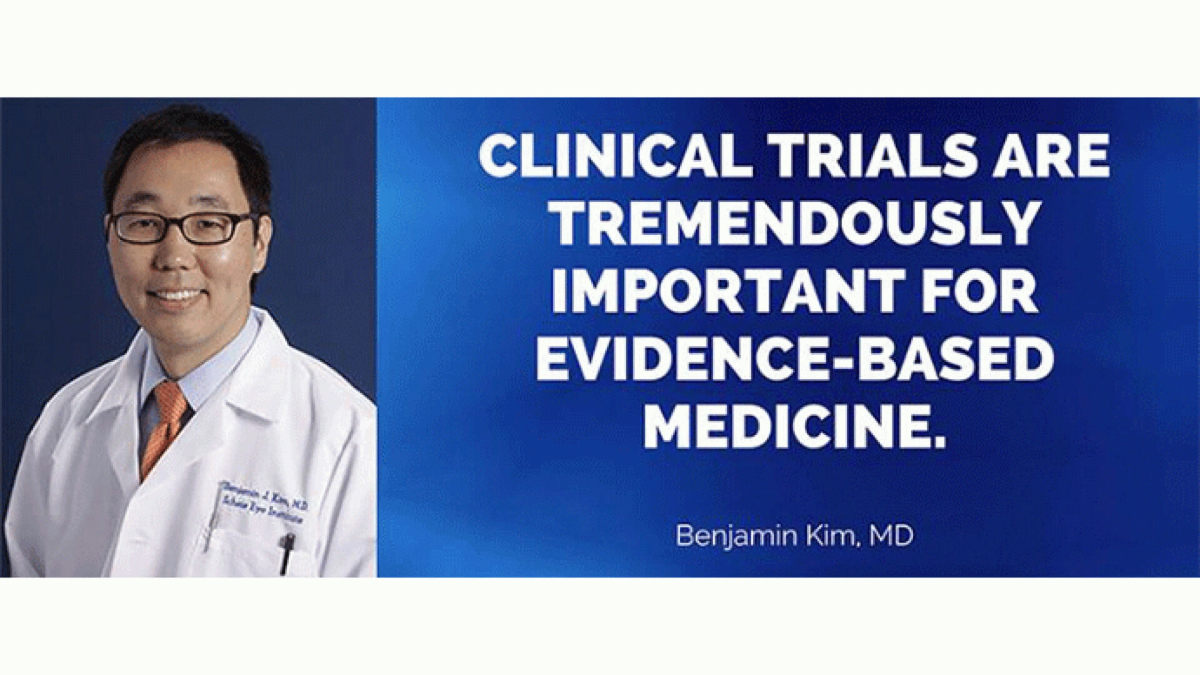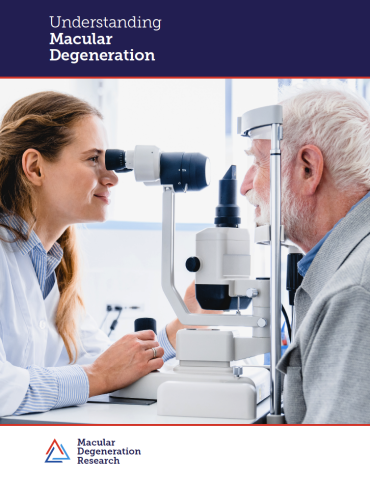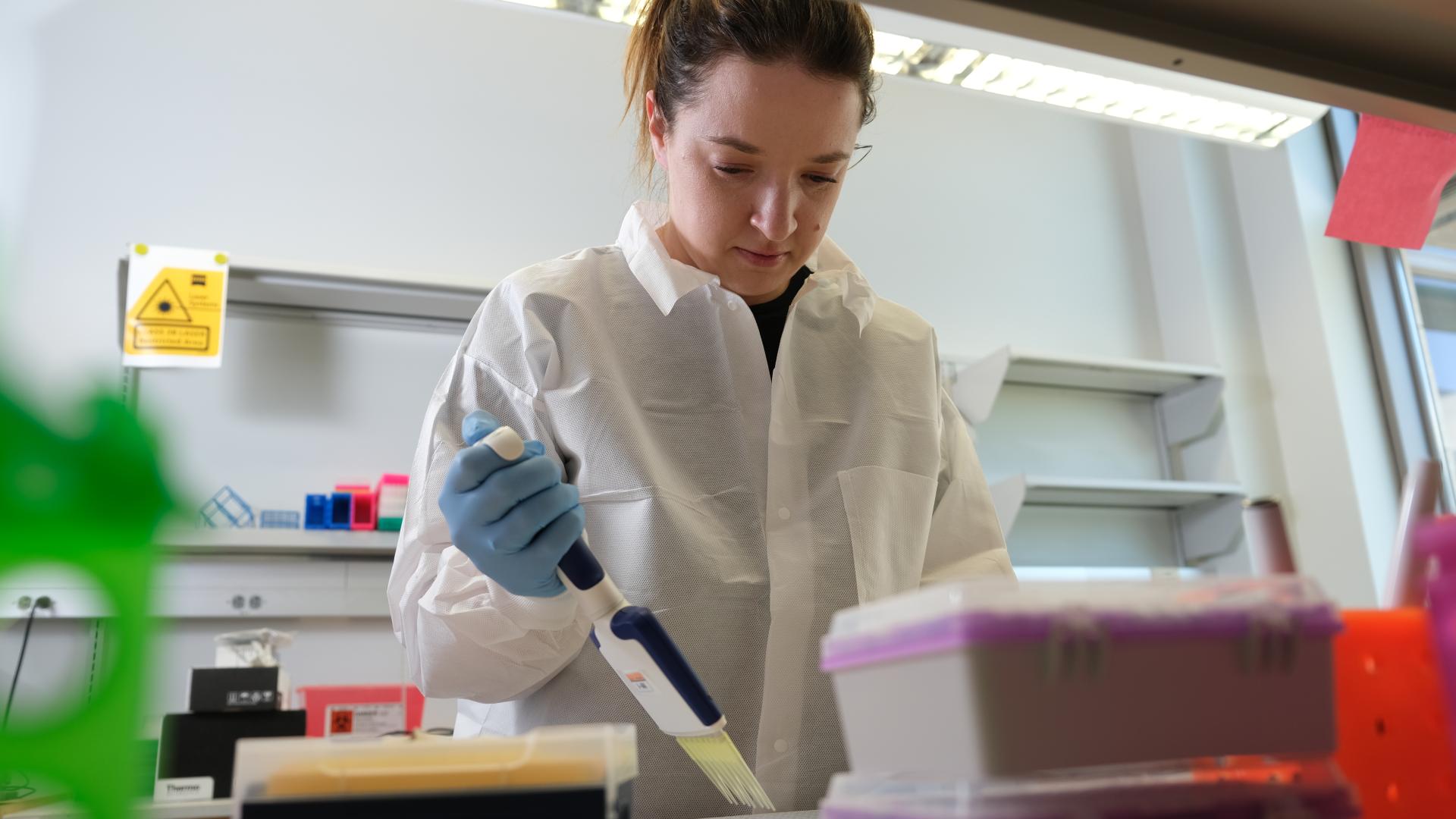
Learn about a clinical trial that may slow the progression of advanced dry age-related macular degeneration.
A clinical trial at the University of Pennsylvania, supported by BrightFocus’ Macular Degeneration Research program, is testing whether alpha lipoic acid can slow down the growth of geographic atrophy, an advanced form of dry age-related macular degeneration.
BrightFocus: What does your clinical trial do?
Dr. Kim: The atrophy (death of retinal tissue) that develops in advanced age-related macular degeneration (AMD) causes approximately 20% of the legal blindness in the United States, and there is no available treatment. The GALA (Geographic Atrophy Lipoic Acid) trial is testing if alpha lipoic acid can slow down the growth of this atrophy. Alpha lipoic acid is an oral supplement that is a potent antioxidant and iron-chelator; it can prevent the damaging effects of oxidative stress and iron overload in AMD.
BrightFocus: Why are clinical trials important?
Dr. Kim: Clinical trials are tremendously important for evidence-based medicine. Physicians need high quality data to be confident that a recommended treatment will help patients and not have concerning side effects. This can only be achieved through carefully designed clinical trials.
BrightFocus: What advice would you give to someone considering volunteering for a clinical trial?
Dr. Kim: If you have any interest in a clinical trial, I recommend being proactive and discussing this with your physician. Depending on the disease, there sometimes are several different clinical trials at different stages of development. Ultimately, each participant has to weigh their own potential risks and benefits and discuss with their physician to make the best decision about trial participation.
BrightFocus: Is there a misperception that the public has about clinical trials that you would like to correct?
Dr. Kim: While many people do appreciate the importance of clinical trials, some may have apprehension about participating in a clinical trial. However, trials are rigorously designed to maximize patient safety and monitor for any safety issues that could develop. Additionally, we must also remember that many FDA approved therapies that we use are available to us only because there were people that previously participated in trials.
BrightFocus: Are you hopeful for the future of vision research?
Dr. Kim: I’m very hopeful for the future of vision research. There have been astounding developments in ophthalmology. Scientists, study participants, and funding organizations like BrightFocus are really making a difference.
GALA Trial Information:
- If you are a patient with geographic atrophy and would like to learn more about the GALA Trial, please contact Joan DuPont at 215-662-8038.
This series of articles promoting awareness of clinical trials is supported in part by an educational sponsorship from Biogen. BrightFocus is solely responsible for the content of this article.
About BrightFocus Foundation
BrightFocus Foundation is a premier global nonprofit funder of research to defeat Alzheimer’s, macular degeneration, and glaucoma. Through its flagship research programs — Alzheimer’s Disease Research, Macular Degeneration Research, and National Glaucoma Research— the Foundation has awarded nearly $300 million in groundbreaking research funding over the past 51 years and shares the latest research findings, expert information, and resources to empower the millions impacted by these devastating diseases. Learn more at brightfocus.org.
Disclaimer: The information provided here is a public service of BrightFocus Foundation and is not intended to constitute medical advice. Please consult your physician for personalized medical, dietary, and/or exercise advice. Any medications or supplements should only be taken under medical supervision. BrightFocus Foundation does not endorse any medical products or therapies.
- Clinical Trials








